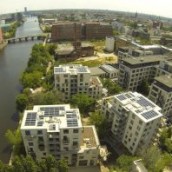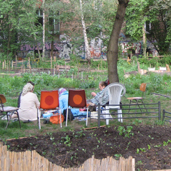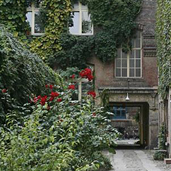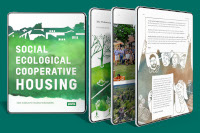Berlin’s Kreuzberg neighborhood has a long history of self-organized initiatives and civil-society activism. This former fringe area of West Berlin bordered the Berlin Wall until 1990. From the 1970s until today, urban regeneration experiments, squats, art spaces and immigrants from all over the world have developed Kreuzberg into one of Germany’s most dynamic and contested districts. This area’s unique history has created a mixture of a dense urban center teeming with activity, as well as hidden spaces providing green oases – fertile ground for those seeking to launch their own neighborhood projects. The current situation, however, is one of gentrification and rising rents.
Discover and explore with us this fascinating urban landscape. Our tours visit Kreuzberg’s inspiring grassroots initiatives which, on the one hand are emphasizing protest and demonstration, while on the other work to improve the quality of life of the residents. We visit urban gardens both large- and small-scale, a children’s farm, informal settlements, ecological architecture, public markets, regenerated art spaces and new collaborative housing developments. Berlin’s turbulent historical context is also emphasized, as we partially follow the route of the former Berlin Wall and explain urban planning projects from the 1800s to the present day. Immerse yourself in the quintessential Berlin neighborhood!






